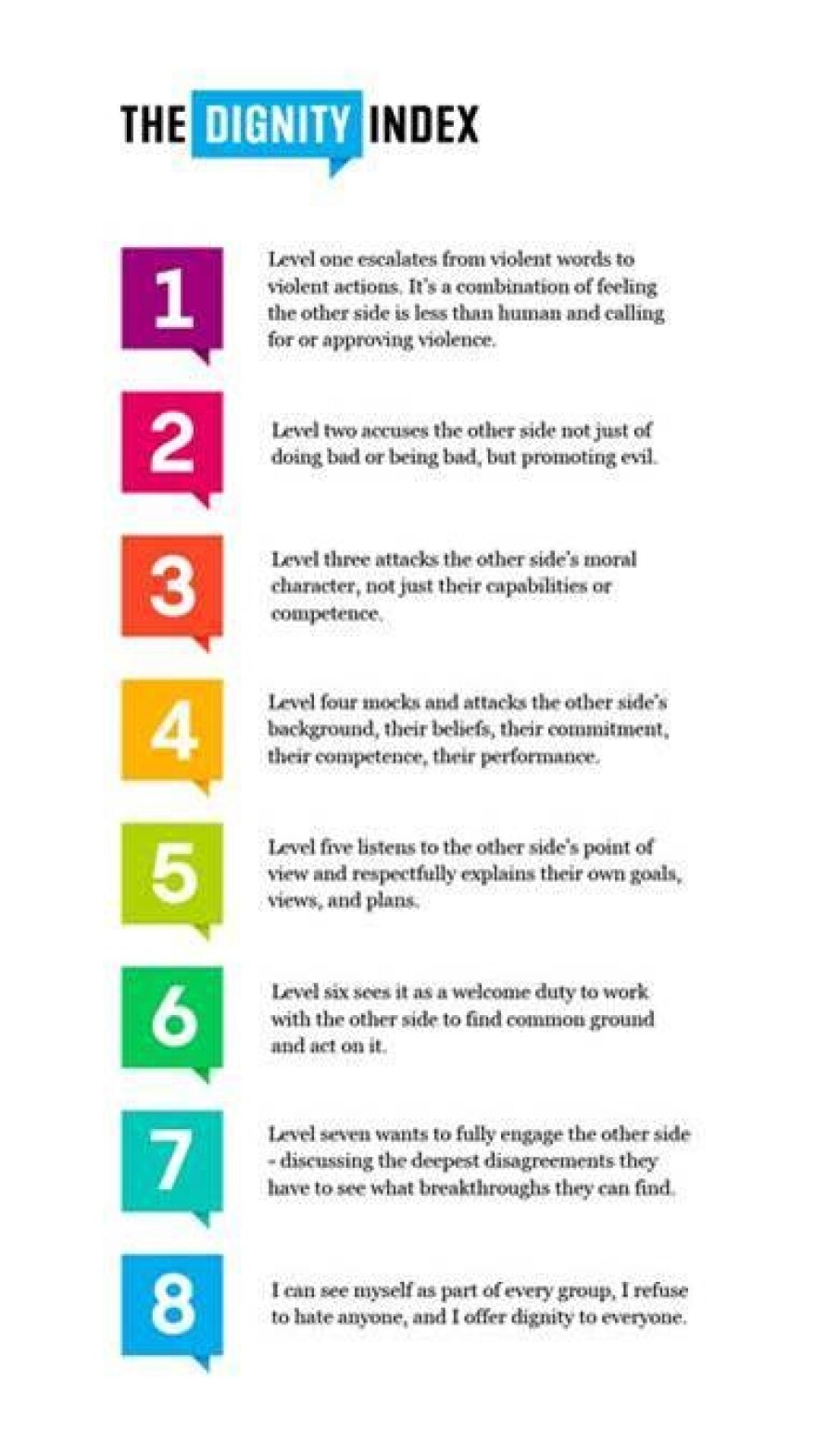Update: The first scores for Oct. 7 are available now. Our original story continues below.
There’s a new plan to measure the civility of Utah’s political discourse this election season.
It’s called The Dignity Index. It doesn’t rate the candidates — but the words that they use.
National project director Tom Rosshirt said the idea began as he and others were exploring ways to address divisiveness in American culture.
“We were encouraged by one member of Congress from Missouri … who said, I’m graded on everything I do and everything I vote on. But no one scores me or evaluates me on how I treat my colleagues, whether I respond with civility or not,’” Rosshirt recalled.
Tami Pyfer is the state’s project lead. She served as education advisor to former Republican Governor Gary Herbert and with Rosshirt and others co-founded a civility project called UNITE.
The group worked with behavioral scientists to develop the Dignity Index, and Pyfer said it makes a lot of sense to try it in Utah.
"We have a history of being able … to come together,” she said, pointing to collaborative partnerships the state has navigated on things like LGBTQ+ and immigration issues.

University of Utah business ethics professor Jesse Graham helped develop the coding system, and the advisory board includes former Gov. Herbert and former Democratic state Senator Pat Jones.
“We believe if we popularize an index that can start a conversation about dignity and contempt, we will get more dignity and less contempt. And we think so because we think we're all sick of it,” said Rosshirt.
The scoring works using a politically diverse team of coders who are trained and supported by the University of Utah’s Kem C. Gardner Policy Institute and the Hinckley Institute of Politics. They will score passages from political candidates' speeches, debates, fundraising outreach, social media posts and campaign ads on a scale from one to eight. One is speech that shows total contempt for the other side. An eight is speech that treats everyone with dignity.
Scores will be accompanied by brief explanations about why it was assigned. In some cases, there will be information on how a higher score could be achieved.
“By rating how [politicians] speak to, and about, one another,” said Pyfer, “we’re hoping they will see the benefit of taking the higher road.”
The Utah group will release scores for the state’s federal races every Friday through election day on Nov. 8.
The first scorecard will be released Oct. 7.


